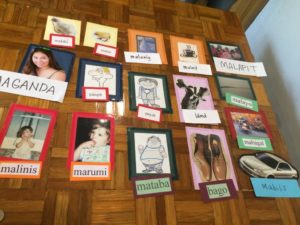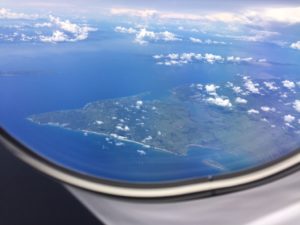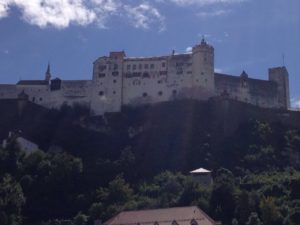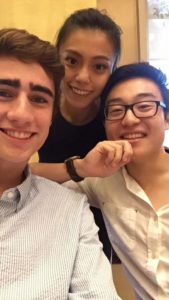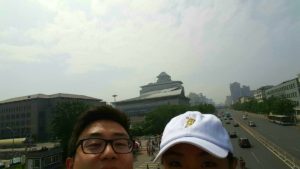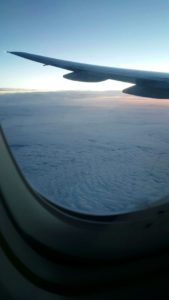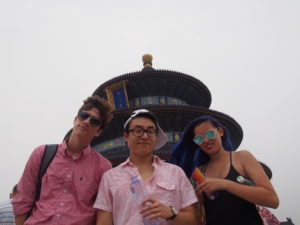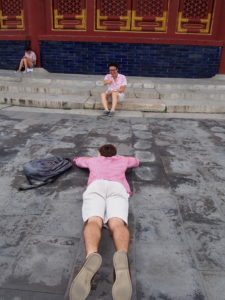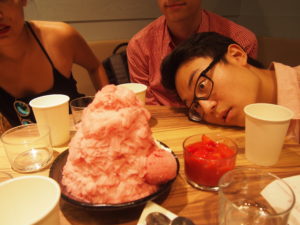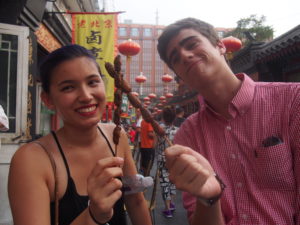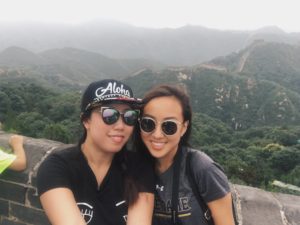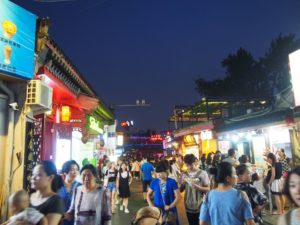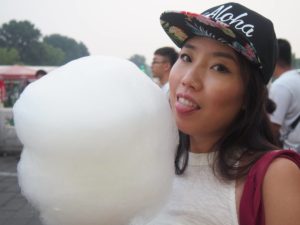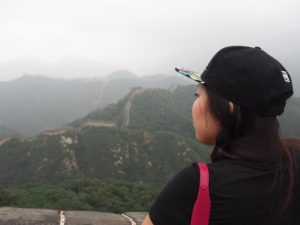As with my previous post, weeks full of learning and activity have kept me from updating this blog as frequently as I would like. Now that I have completed my courses at the Goethe Institut and have a few more days of travel before I return to the United States, it seems like an appropriate time to reflect on my major experiences this summer: learning German, living in Mannheim, and acquainting myself with the culture and politics of Germany.
The final two weeks of my second Goethe Institut course, which ended last Thursday, went by so quickly they were hard to absorb. Unlike my first course, which had one instructor for all four weeks, this one was divided between two instructors who each taught a two week section. While my instructor for the final stretch did a fine job picking up where the other left off, it was nevertheless a transition that broke up the continuity of the course. Anticipating my return to the United States and the start of a new semester this fall also preoccupied me over the past two weeks, so my attention was divided as the last class approached. Despite this, I felt a real sense of achievement and camaraderie with my classmates on our final days of the course. I had studied with some of these people for my entire two months in Germany, and I will miss them and the unique international community that composes Goethe Institut. And while the busyness of the past two weeks made me question how much German I was learning, my travels after leaving Mannheim have shown to me how far I have come in my ability to use the language in daily situations, and to intuitively piece together what words and phrases mean even if I have not studied them formally. I’m grateful for the continued opportunity to practice speaking German as I travel a few days here before returning home.
Some of the people I have talked to have asked my why I choose to study in Mannheim. The city of squares is certainly not Germany’s most picturesque, so I partly understand why some would be curious about my choice. But looking back on my time in the city, I think Mannheim was a wonderful place to be introduced to contemporary Germany. While some might not appreciate its industrial business landscape (the city houses major corporations and manufacturers like John Deere, Daimler, Caterpillar, Siemens, and Unilever), these companies are a very real part of what makes Germany one of Europe’s strongest and most powerful economies. Whenever I walked along the Rhine, I saw not only cruise boats but barges carrying automobiles and other goods north. I appreciate the important economic realities that are more visible in Mannheim than in some of the country’s more picturesque cities. Another way in which the city exemplifies contemporary Germany is the significant role it has played in housing the thousands of refugees, die Flüchtlinge, that have immigrated here in the last two years. Mannheim was already a multicultural city because of the immigration from Turkey and southeastern Europe decades early, and once again it has become an arrival city. More than 80,000 refugees have passed through here in the past two years while being distributed through the region, and the city has given more permanent shelter to 12,000. While I did not necessarily sense this while walking the main streets (I did not to visit Benjamin Franklin village, the former US military base that now houses refugees), knowing that Mannheim was participating the refugee arrival process inspired me to research this situation more than I might have otherwise. Studying in this city helped me to get beyond the image of Germany as a country of Dichter und Denker (poets and thinkers), or of Oompah and beer halls (although I like those too!).
Beyond the formal learning, and the cultural and political education I undertook in Mannheim, I’m most struck by the importance of my interactions and relationships with native German speakers. In fact, these interactions and relationships undergirded my formal learning and and education. Numerous daily conversations in the street or in shops not only spurred my language acquisition, but also forced me out of my comfort zone and made me more open to learning. Most important of all was the friendship that developed between me and my conversation partner who I met with to practice her English and my German once a week. After my Goethe Institut course finished and I had checked out of my apartment, I went over to my friend’s house for tea and a homemade cake, and then she gave me a ride to catch my train. A few days later we met for a final time in Constance where we both were traveling. That my departure from Mannheim and from Germany is marked by saying goodbye to a friend, and not just completing a language learning program, has been one of the highlights of my time here.
As my time in Germany winds down, I can’t help but remember Carol, the character in the 14e Arrondissement segment of Paris, je t’aime, as she reports to her French class about her trip to Paris. Her experience is funny and also touching for its portrayal of a language learner making her way through an experience abroad. I can’t say I’ve experienced a moment like the one Carol describes at the end of her report. But I hope that this summer will not be my last opportunity to be in Germany.
PS: I know this blog has perhaps been a little light on the photos. I’ve posted a selection from my time here below (click on each photo for better resolution).
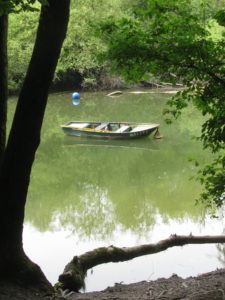
A boat in the Rhine
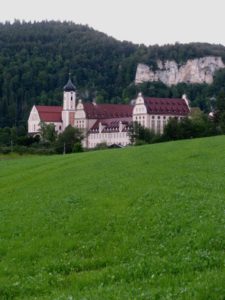
Benedictine Archabbey in the Donau River Valley town of Beuron
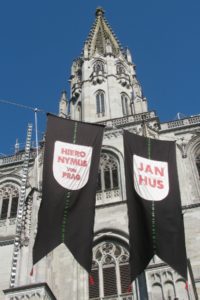
Banners commemorating the Hieronymus von Prag and Jan Hus in front of the Münster in Constance
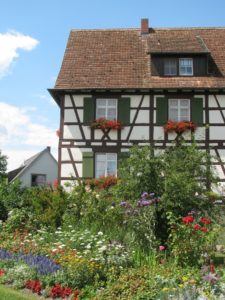
Flowers on Reichenau Island
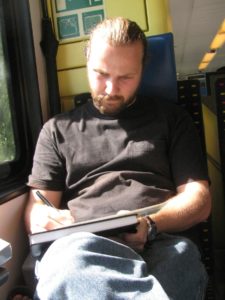
Writing a postcard on a train
